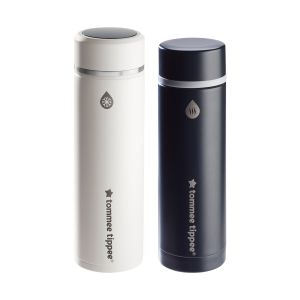
This is a demo store. No orders will be fulfilled.
Subscription orders can be cancelled at anytime. Free delivery on all subsequent subscription orders. Find out more about subscriptions.
They’re easy and fuss free
Your products are automatically sent to you
You save up to 10% when you sign up for a subscription
You can cancel at any time
Babies can���t let you know when they���re feeling under the weather, and this can be upsetting for both them and you! If you suspect that your little one is unwell, it���s important to take a temperature reading to understand how they���re feeling and decide the best course of action.
We���ve written this guide to help you learn how, when, and how often to take a baby���s temperature, and to let you know when to seek medical attention.
You should check your baby���s temperature using a digital thermometer any time you���re concerned that they may have a high temperature or if they���re showing signs of being unwell.
If your little one seems to be unwell, you should monitor them closely and take their temperature every three to four hours.
Some digital thermometers have a memory function which allows you to track their temperature. But if yours doesn't, it can help to keep a diary of your little one's temperature so you can monitor them over time. If you need to, you can take these notes to the doctor.
Digital thermometers provide fast and accurate readings and can be used to take a reading from a baby���s forehead, armpit, mouth, or in their ear.
It���s a good idea to find out what your little one���s ���baseline��� temperature is when they���re feeling well. For consistency, you should always take their temperature from the same location ��� oral, armpit, ear, or forehead.
Although it���s possible to use a digital probe thermometer to take a baby���s rectal temperature, this can potentially damage the lining of their rectum, so isn���t recommended.
Old-fashioned glass thermometers contain mercury and can break and release small splinters of glass and highly poisonous mercury. They're no longer used in medical settings, can���t be bought in shops, and should never be used to take a baby���s temperature.
It���s best to carefully follow the instructions for your specific thermometer but to help you out, we���ve created a basic step-by-step guide to each method:
From birth, you can take a forehead temperature reading from your baby using a no-touch infrared thermometer.
If you���re using an oral probe thermometer, don���t take your child���s temperature straight after they���ve had hot or cold food or drinks.
From birth, a digital thermometer with a soft and flexible probe can be comfortably positioned under a baby���s armpit to take their temperature.
If your little one is aged three months and up, you can take an in-ear temperature reading using a specially designed digital in-ear thermometer. This method only takes a few seconds, so is handy if your baby is fussy and difficult to keep still.
When using a digital thermometer to take your baby���s temperature, be sure to always follow the manufacturer's instructions carefully so that you get an accurate reading.
If your baby has been wrapped up tightly in a blanket, is in a very warm room, wearing lots of layers or having a bath, you may find that their temperature is elevated. Therefore, the reading you get will be slightly inaccurate. It���s a good idea to let them cool down for a minute or two, then take their temperature again to see if there's any change.
Using a digital thermometer is the best and most accurate way to take your little one���s temperature. But if you don���t have access to one, there are other fever symptoms you can look out for.
If you can answer ���yes��� to any of the below points, your baby may have a fever:
It can sometimes be hard for parents to distinguish normal fussiness or mild illnesses from serious problems. While all little ones get poorly from time to time, there are some occasions when they���ll need to visit your healthcare provider for treatment.
If you're worried about your baby's symptoms, don't hesitate to call your doctor. Let���s run through when to get medical support and advice if you���re concerned about your baby���s temperature.
You should contact your healthcare provider if your baby���
Other symptoms that require medical attention include your baby���